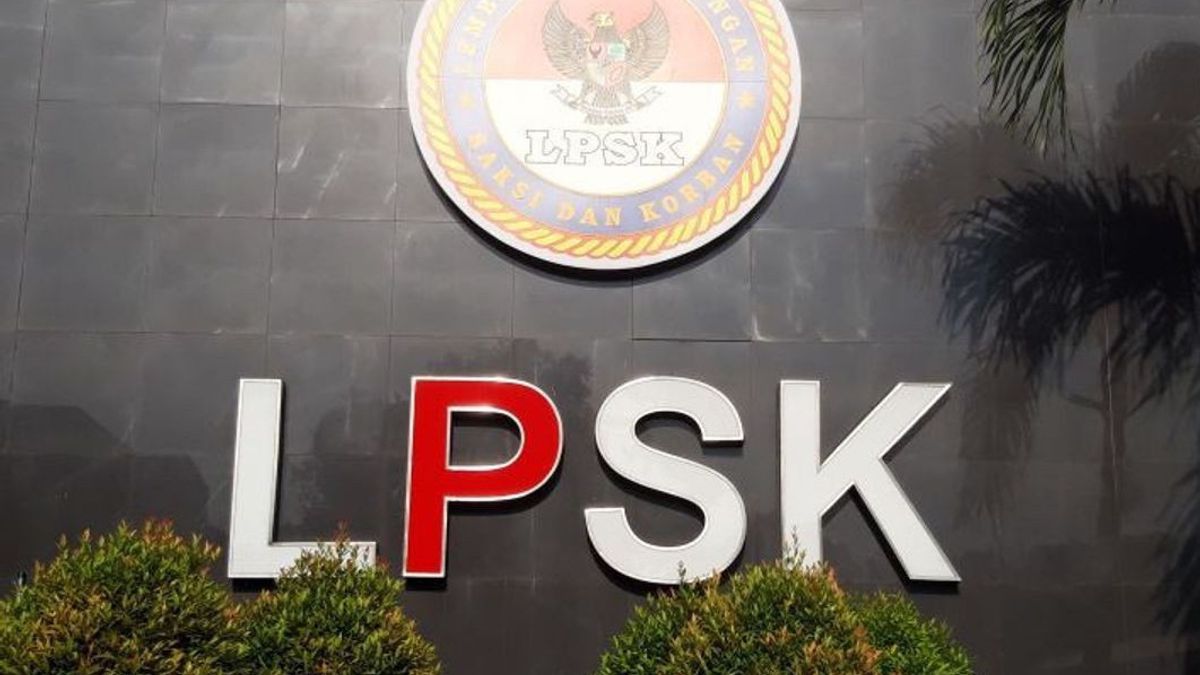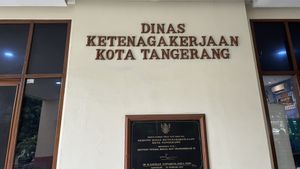JAKARTA - The Witness and Victim Protection Agency (LPSK) reminded that criminal acts of sexual violence (TPKS) should not be resolved traditionally, because the Law on the Crime of Sexual Violence (UU TPKS) does not recognize the settlement of cases outside the judicial process.
One thing that I think is very important. The TPKS Law does not recognize the settlement of cases outside the judicial process. This means that we all have to support it. Don't let the thinness of it still be done (resolution outside the judicial process), this is what is not allowed, including customary practices," said LPSK Deputy Chair Sri Nurherwati as quoted by Antara, Monday, October 7.
Sri said that recently she visited a father in Southwest Sumba, East Nusa Tenggara (NTT), who withdrew the report to the Resort Police and revoked the protection of her child who was a victim of sexual violence because he felt it had been resolved in a customary manner.
The father has received livestock and several other items as a symbol of traditional completion.
To the father, Sri emphasized that the affairs between the victim's family and the perpetrator may have been completed. However, the management of the perpetrator and the state has not been completed. If someone obstructs the legal process against the perpetrator, then the person can also be subject to criminal acts.
"Alhamdulillah, the father replied, 'Good, I will not hinder the legal process. Please if the state has to work for it'. And I think a lot of people are still making it a traditional solution. This is our common task to emphasize that there is no process outside the court that can resolve sexual violence, "explained Sri.
According to him, it is not enough to confirm that the settlement of cases of sexual violence outside the judiciary is not only carried out by socializing. This effort must also involve local governments, even cooperating with a number of traditional leaders who can communicate the problem.
Sri said traditional practices that were not in accordance with the Convention on the Elimination of All forms of Discrimination against Women (CEDAW) would hinder efforts to remove 'trees' from discrimination to their roots.
So, he added, traditional practices must be recognized which ones discriminate against women and which ones are not.
It is customary practices that discriminate against women that must be expressly stated that this should not be done again, including the practice of settlement outside the court on behalf of the custom.
"This is still a lot of homework. We all have to be involved a lot, including those in the area who still use traditional practices so that we jointly encourage the identification of traditional practices that violate human rights and are not allowed to be practiced, including in the settlement of criminal acts of sexual violence," he said.
Not only related to customary practices, Sri reminded that Law Enforcement Officials (APH) are also not allowed to resolve cases of sexual violence outside the court. He also reminded that restitution is the right of victims and is not a tool for bargaining positions to ease sentences.
SEE ALSO:
Therefore, APH who handles the case must be a competent human resource that understands human rights (HAM) problems and understands the handling of cases of sexual violence.
"I think we are communicating with PPA unit supervisors and we will have a dialogue with the Directorate of PPA-PPO Crimes Bareskrim Polri. Also with the Attorney General's Office, we have also conveyed, there should be no settlement outside the court because it is a different matter, not even a mitigating thing because it is an obligation," said Sri.
The English, Chinese, Japanese, Arabic, and French versions are automatically generated by the AI. So there may still be inaccuracies in translating, please always see Indonesian as our main language. (system supported by DigitalSiber.id)


















